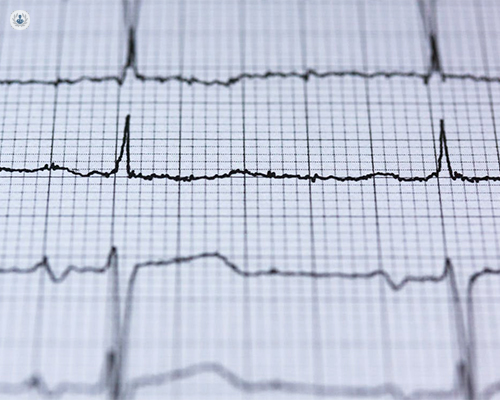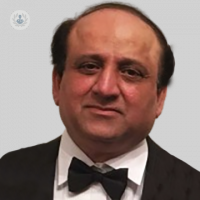Understanding heart palpitations: what you need to know
Written in association with:In this article below, esteemed consultant cardiologist, Dr Anil Kumar Taneja, explains when palpitations should be a cause for concern, and what typically causes them.

What causes heart palpitations?
Heart palpitations, or the sensation of a rapid, fluttering, or pounding heartbeat, can be caused by various factors. These include stress, anxiety, strenuous physical activity, caffeine or nicotine consumption, hormonal changes, medication side effects, and underlying heart conditions such as arrhythmias or heart valve disorders. Though certain medical conditions like thyroid disease and anaemia could also cause it.
Should I be worried about heart palpitations?
In quite a few cases, occasional heart palpitations are harmless and can be attributed to temporary factors like stress or caffeine intake. However, if palpitations are accompanied by other symptoms such as chest pain, dizziness, fainting, or shortness of breath, it's important to seek medical attention promptly. Some arrhythmias relating to an issue with electric wiring in the heart may not be associated with other symptoms other than palpitations.
This mostly occurs when they are briefer and from the upper chambers of the heart, called the atria. If you experience palpitations with associated dizzy spells/collapse/chest pains/shortness of breath, then it is important that they are further evaluated by a cardiologist.
How can I tell if my palpitations are serious?
Palpitations may indicate a more serious underlying heart condition if they are frequent, prolonged, occur at rest, or are associated with other symptoms like chest discomfort, breathlessness, lightheadedness, or fainting/dizziness/near fainting spells. It's essential to consult a healthcare professional to determine the cause and appropriate management.
What are some home remedies for heart palpitations?
Simple lifestyle changes can help alleviate occasional palpitations. These include reducing stress through relaxation techniques such as deep breathing or meditation/yoga, avoiding stimulants like caffeine and nicotine, too much of organic supplements, maintaining a healthy diet, staying hydrated, and getting adequate rest.
However, in case of any doubt or persisting or recurrent palpitations, especially with associated symptoms as outlined above, it is recommended to consult with a consultant healthcare professional. There are medical causes as well which can cause palpitations as mentioned, including anaemia and thyroid disease/stimulants and medications, which would all also need further evaluation.
When should I see a doctor about palpitations?
If you experience frequent or persistent palpitations, particularly if they are accompanied by other concerning symptoms, it's advisable to seek medical evaluation. Your doctor can perform a thorough assessment to determine the cause and recommend appropriate treatment. It is advisable to use a rhythm monitor watch or if you have a nearby facility available for ECG, this should be considered when having palpitations.
Are there any tests to diagnose heart palpitations?
Diagnostic tests for palpitations may include an electrocardiogram (ECG or EKG) to record your heart's electrical activity, a Holter monitor for continuous ECG monitoring over 24 to 48 hours, or additional tests such as echocardiography or stress testing to assess heart function and identify any underlying conditions contributing to palpitations.
Based on the initial evaluation, it is then possible that some patients may need second line investigations including echocardiogram or other imaging modalities. It is very rare that patients need advanced cardiac investigations.
To book an appointment with Dr Anil Kumar Taneja today, just head over to his Top Doctors profile.


